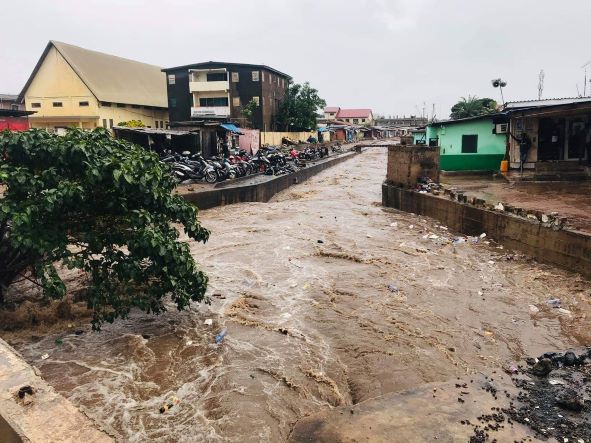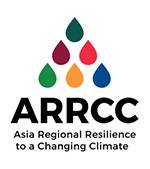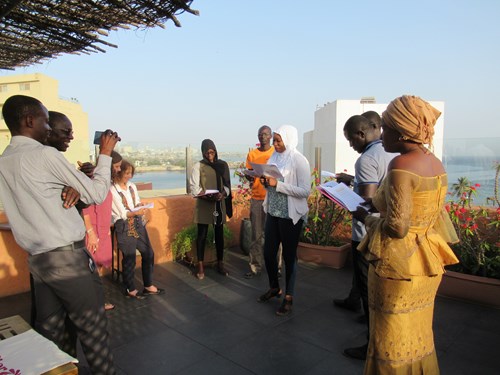Find a Course
Use the tool below to search the range of courses that are currently available from the Walker Academy and our partner organisations.
If you can’t find a suitable course for your training needs, please let us know using the contact form at the bottom of this page. We’re always looking to improve the breadth of training that we offer based on the feedback of our learners.
Introduction to Numerical Modelling of the Atmosphere and Ocean
The aim of this MSc module is to familiarise the students with a range of concepts and techniques used in the numerical modelling of atmospheric and oceanic fluid flows. This will include mathematical analysis, modelling and some good programming practices. Registration with University of Reading (via Department of Meteorology “online courses”). Cost in 2021/2022 ~£300.
| BIP-M Alignment: | Mathematics, Physics, Atmospheric Dynamics, |
| Learning Aims | By the end of this module students should be able to:
|
| Target Audience | Entry-level Scientist (beginner technical) |
| Continent
|
Global |
| Duration
|
41 – 100 hours |
| Delivery method
|
Blended |
| Format (primary) | Lectures, computing practical classes and written reports on practicals. |
| IPR Owner | University of Reading |
| Course status | Active |
| Contact email: | Hillary Weller < h.weller@reading.ac.uk > |
An Introduction to Meteorological Measurements
The lecture content covers:
- Fundamentals of instrumentation;
- Theory and practice of experimental data analysis;
- Measurement techniques for air temperature, humidity, wind speed and direction, pressure, rainfall, solar and terrestrial radiation and upper air sounding.
The practical content involves carrying out set experiments selected from the following:
- Time response of a thermometer;
- Thermometer calibration;
- Humidity measurements;
- Characteristics of a propeller anemometer;
- Calibration of a radiosonde pressure element;
- Absolute calibration of a net radiometer;
- Ventilation effects on psychrometry.
| BIP-M Alignment: | Meteorological Parameters, Instruments & Methods of Observation |
| Learning Aims | By the end of this module the student should be able to:
|
| Target Audience | Entry-level Scientist (beginner technical) |
| Continent
|
Global |
| Duration
|
41 – 100 hours |
| Delivery method
|
Blended |
| Format (primary) | Lectures; laboratory classes, discussion classes and group experiments. |
| IPR Owner | University of Reading |
| Course status | Active |
| Contact email: | Chris Scott < chris.scott@reading.ac.uk > |
FRACTAL Climate Information Training (Windhoek)
Led by Climate System Analysis Group, University of Cape Town, and focusing improving climate resilience in 8 cities in South and southern Africa. One focus of the Met Office work will be to apply, and to enhance when necessary, information on, and an understanding of the processes driving, African climate variability and change in order to provide targeted information on local and regional climate on the 5-40 year timescale relevant to the cities and regions the project will engage with. A second focus will be to work closely with project staff both in the target cities and from the other collaborating institutes to engage in the iterative, transdisciplinary co-exploration/co-production activities which will define the problem areas, the various research questions and the inputs into decision-making to improve the resilience of the cities and regions to climate change over the medium term.
The Future Resilience for African Cities and Lands (FRACTAL) project has been operating in Windhoek (and 8 other cities) since 2015. The focus has been on engaging many diverse people to think through and co-generate knowledge on what decisions facing Windhoek are climate-sensitive, how the climate affecting Windhoek is changing, who has what power to act in reducing climate risks, and what is needed to put Windhoek on a more climate-resilient development pathway. Three ‘Learning Labs’ took place, focussing on decision-making exercises
Workshop sessions on ‘climate science essentials’, ‘interpreting graphs’, ‘climate change indices and terminology’, and ‘sources of climate data’
| BIP-M Alignment: | Climate Services |
| Learning Aims | Not stated |
| Target Audience | Intermediary (Informed, non-technical) |
| Continent
|
Africa |
| Duration
|
3 – 5 hours |
| Delivery method
|
Lectures |
| Format (primary) | Lectures |
| IPR Owner | Met Office / FRACTAL project |
| Course status | Dormant |
| Contact email: | Richard Jones < richard.jones@metoffice.gov.uk > |
Dengue Seasonal Training Material
Seasonal training on making decisions and understanding probabilistic projections designed for Vietnam. (English and Vietnamese versions).
The training covers four key topics:
- How the D-MOSS system works
- Interpreting forecasts and taking action
- Paying for Predictions (a game to experience probabilistic decision making)
- Understanding uncertainty and probabilities in seasonal forecasts
| BIP-M Alignment: | Climate Services |
| Learning Aims | Facilitate in-country Train-the-Trainer workshops for using the D-MOSS dengue seasonal forecasting tool. |
| Target Audience | Service User (non-technical) |
| Continent
|
Asia |
| Duration
|
6 – 10 hours |
| Delivery method
|
Blended |
| Format (primary) | Online course (self-led) |
| IPR Owner | Met Office / HR Wallingford |
| Course status | Active |
| Contact email: | Laura Burgin < Laura.burgin@metoffice.gov.uk > |

Climate Resilience – Evidence Synthesis Training (CREST)
The training includes practical scenario-based experience of the decision-making processes that take place at every level during emergencies arising from extreme weather events such as flooding.
The focus of this training will be on the synthesis and interpretation of evidence from disciplines including climate science, livelihoods and hydrology, and the production of relevant outputs in appropriate formats, to support decision making during times of crisis.
| BIP-M Alignment: | Climate Services |
| Learning Aims |
|
| Target Audience | Entry-level Scientist (beginner technical) |
| Continent
|
Africa |
| Duration
|
21 – 40 hours |
| Delivery method
|
In-person |
| Format (primary) | Lectures |
| IPR Owner | The Walker Institute |
| Course status | Active |
| Contact email: | academy@walker.ac.uk |
Climate Services and Climate Impact Modelling
This module seeks to provide students with the scientific awareness, practical techniques and communication skills required for the provision of climate services and climate impact modelling.
The content is divided into three parts: a series of lectures outlining the scientific/technical issues associate with climate service provision; an extended technical analysis computer practical; and seminars to develop awareness of practical industrial and sectoral concerns.
| BIP-M Alignment: | Climate Services |
| Learning Aims: |
|
| Target Audience | Entry-level Scientist (beginner technical) |
| Continent
|
Global |
| Duration
|
41-100 hours |
| Delivery method
|
Blended |
| Format (primary) | Lectures, extensive notes, seminars, computer labs, independent work via assessments/projects |
| IPR Owner | University of Reading |
| Course status | Active |
| Contact email: | David Brayshaw < d.j.brayshaw@reading.ac.uk > |
BIP-M Climate (Myanmar)
A 4-week part-time online blended course, delivering the WMO’s two BIP-M 2.3.4 climatology modules. Certain topics have south-east Asia / Myanmar-specific contents. Sessions are a blend of online workbooks, practical worksheets, group activities and online tools.
| BIP-M Alignment: | 3.4.2 Climate variability and climate change |
| Learning Aims | An individual achieving the learning outcomes dealing with climatology shall be able to:
|
| Target Audience | Entry-level Scientist (beginner technical) |
| Continent
|
Asia |
| Duration
|
60 hours |
| Delivery method
|
Blended |
| Format (primary) | Online course (self-led) |
| IPR Owner | Met Office |
| Course status | Active |
| Contact email: | Rosanna Amato < Rosanna.amato@metoffice.gov.uk > |

ARRC Seasonal Training
Seasonal forecast training for South Asia. Sessions include teleconnections, ensembles, verification (ROC / reliability scores), introduction to CPT (statistical downscaling).
| BIP-M Alignment: | Numerical modelling |
| Learning Aims | How to create, verify and interpret seasonal forecasts generated using the CPT statistical downscaling tool. |
| Target Audience | Entry-level Scientist (beginner technical) |
| Continent
|
Asia |
| Duration
|
11-20 hours |
| Delivery method
|
In-person |
| Format (primary) | Lectures |
| IPR Owner | Met Office |
| Course status | Dormant |
| Contact email: | Tammy Janes < tamara.janes@metoffice.gov.uk > |
Find out more

Adaptive Social Protection Training
The training consists of 6 sections which take learners through to a critical understanding of adaptive social protection: (1) Climate variability and change- a driving force; (2) The new normal: linking climate science to livelihoods resilience; (3) Why build resilience? What role can Social Protection policies play?; (4) Measuring livelihoods and modelling climate impacts: The Household Economy Approach (HEA) and the IDAPS platform; (5) Knowledge exchange and communication; and, (6) Case studies.
|
BIP-M Alignment: |
Climate Services |
| Learning Aims: | To provide learners with:
|
| Target Audience | Any |
| Continent
|
Africa |
| Duration
|
21 – 40 hours |
| Delivery method
|
In-person |
| Format (primary) | Lectures |
| IPR Owner | The Walker Institute |
| Course status | Dormant |
| Contact email: | academy@walker.ac.uk |
Find out more

